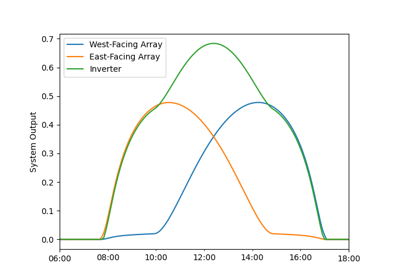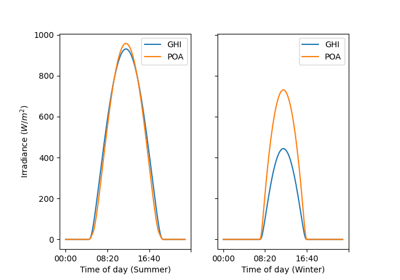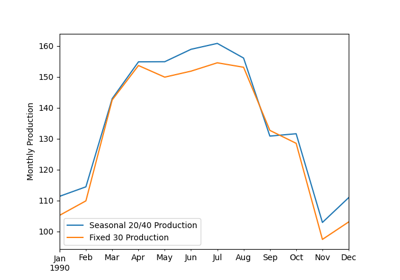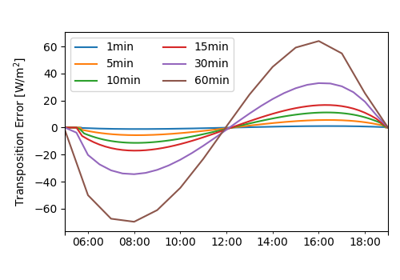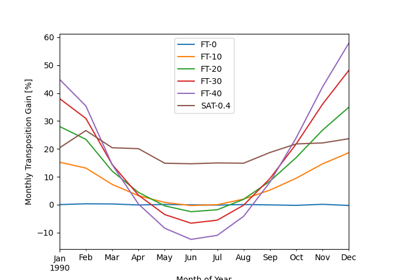pvlib.location.Location¶
-
class
pvlib.location.Location(latitude, longitude, tz='UTC', altitude=0, name=None)[source]¶ Location objects are convenient containers for latitude, longitude, timezone, and altitude data associated with a particular geographic location. You can also assign a name to a location object.
Location objects have two timezone attributes:
tzis a IANA timezone string.pytzis a pytz timezone object.
Location objects support the print method.
- Parameters
latitude (float.) – Positive is north of the equator. Use decimal degrees notation.
longitude (float.) – Positive is east of the prime meridian. Use decimal degrees notation.
tz (str, int, float, or pytz.timezone, default 'UTC'.) – See http://en.wikipedia.org/wiki/List_of_tz_database_time_zones for a list of valid time zones. pytz.timezone objects will be converted to strings. ints and floats must be in hours from UTC.
altitude (float, default 0.) – Altitude from sea level in meters.
name (None or string, default None.) – Sets the name attribute of the Location object.
See also
Methods
__init__(latitude, longitude[, tz, …])Initialize self.
from_epw(metadata[, data])Create a Location object based on a metadata dictionary from epw data readers.
from_tmy(tmy_metadata[, tmy_data])Create an object based on a metadata dictionary from tmy2 or tmy3 data readers.
get_airmass([times, solar_position, model])Calculate the relative and absolute airmass.
get_clearsky(times[, model, solar_position, …])Calculate the clear sky estimates of GHI, DNI, and/or DHI at this location.
get_solarposition(times[, pressure, temperature])Uses the
pvlib.solarposition.get_solarposition()function to calculate the solar zenith, azimuth, etc.get_sun_rise_set_transit(times[, method])Calculate sunrise, sunset and transit times.
